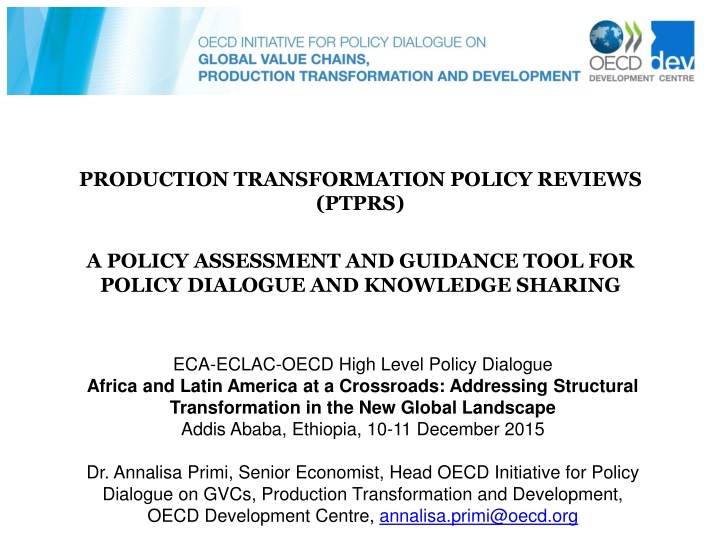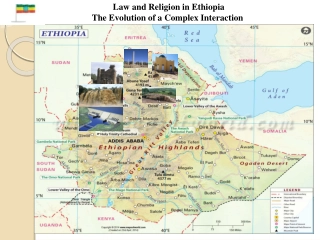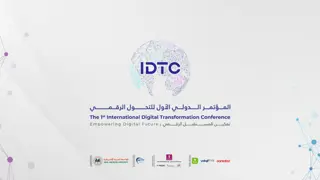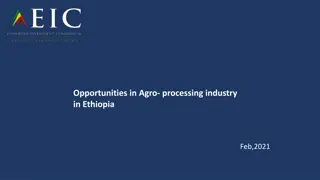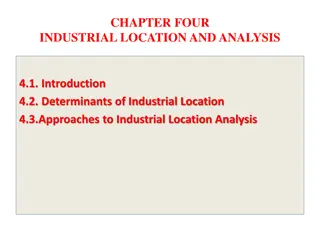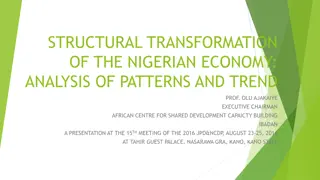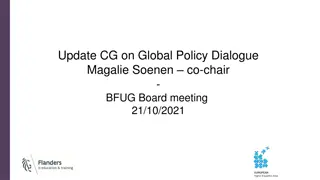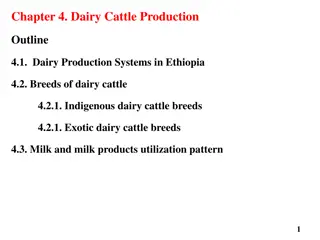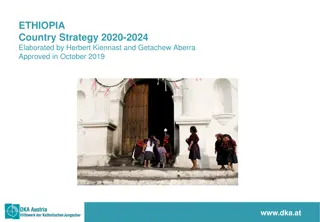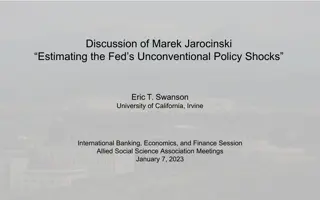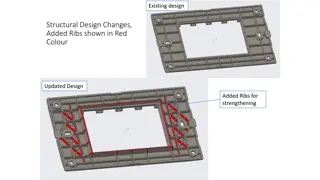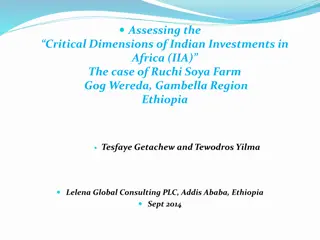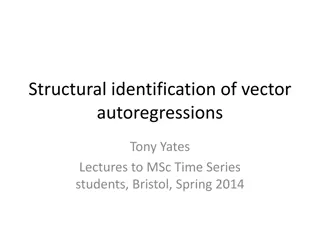High-Level Policy Dialogue on Structural Transformation in Ethiopia
A policy assessment and guidance tool for policy dialogue and knowledge sharing at a high-level event in Addis Ababa, Ethiopia. The dialogue explores addressing structural transformation in the new global landscape, focusing on the impact of production structure on development, specialization, diversification, value-added domestic production, job creation, innovation, and competitiveness in developing economies amidst increasing uncertainty and complexity.
Download Presentation

Please find below an Image/Link to download the presentation.
The content on the website is provided AS IS for your information and personal use only. It may not be sold, licensed, or shared on other websites without obtaining consent from the author.If you encounter any issues during the download, it is possible that the publisher has removed the file from their server.
You are allowed to download the files provided on this website for personal or commercial use, subject to the condition that they are used lawfully. All files are the property of their respective owners.
The content on the website is provided AS IS for your information and personal use only. It may not be sold, licensed, or shared on other websites without obtaining consent from the author.
E N D
Presentation Transcript
PRODUCTION TRANSFORMATION POLICY REVIEWS (PTPRS) A POLICY ASSESSMENT AND GUIDANCE TOOL FOR POLICY DIALOGUE AND KNOWLEDGE SHARING ECA-ECLAC-OECD High Level Policy Dialogue Africa and Latin America at a Crossroads: Addressing Structural Transformation in the New Global Landscape Addis Ababa, Ethiopia, 10-11 December 2015 Dr. Annalisa Primi, Senior Economist, Head OECD Initiative for Policy Dialogue on GVCs, Production Transformation and Development, OECD Development Centre, annalisa.primi@oecd.org
http://www.accwam.com/ckfinder/userfiles/images/un-escwa2.jpghttp://www.accwam.com/ckfinder/userfiles/images/un-escwa2.jpg
A new global socio-economic, political and technological landscape Higher uncertainty, growing complexity and growing power pressures (reconfiguration of blocks/alliances/interests) Experimentation and country (and local level) of new approaches and solutions to address the evolving and uneven impacts of globalisation
3 Premises Development is a process of transformation of socio-economic structures (=> Production structure matters for development what you produce, how you organise production and what and with whom you trade impact standards of living, job creation and degree of inclusiveness of growth patterns). There are no natural reasons for a country or a region to be specialised in an activity/sector. Specialisation and diversification patterns are often determined by a combination of factors including market incentives, with ACTIVE and SELECTIVE public policies in a variety of fields and institution building. Variety of ways. Globalisation & the past and on-going changes in the organisation of production have opened and are opening potential opportunities for production transformation in developing economies. But the current GVCs debate is happening in an evolving and different global economic context (different demands, aspirations and worries for different countries; almost 3 decades of accumulative changes in the re-organisation of production and growing cross-national [science, production and financial] interests and emerging new trends).
Increasing value added of domestic production Creating better jobs (which requires better skills) Promoting research, technological development and innovation to sustain competitiveness
Growing uncertainty and complexity => return of national industrial development strategies in global economies (challenge of defining the vision and clarifying the stakeholders) New values for market and the society (inclusiveness and sustainability) Behavioural patterns conducing to superior performance what do we know about it? (cooperation/collaboration/networks) MNCs are changing strategies => relocation, benefits of co-location between manufacturing and innovation& services SMEs facing specific challenges which require specific responses
Production Transformation Policy Reviews (PTPRs) PTPRs Interpretative framework 5 Pillars for the PTPRs Anticipation Capacity Adaptation Capacity Embeddedness Potential Learning and Upgrading Potential Interconne ctedness Propensity 5 dimensions for assessing the potential of production and innovation systems and policies for transformation and upgrading Source: Primi (2014)
